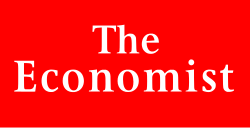
July 23, 2024
Biography and memoir
Ian Fleming: The Complete Man. By Nicholas Shakespeare. Harper; 864 pages; $35. Harvill Secker; £30
The most comprehensive biography of James Bond’s creator documents his patriotism and notable contributions to Britain’s war effort, but it does not make him likeable.
Maurice and Maralyn: An Extraordinary True Story of Love, Shipwreck and Survival. By Sophie Elmhirst. Chatto & Windus; 272 pages; £18.99
A deeply reported story of a couple stranded at sea for almost four months in 1973. Never sentimental and perfectly paced, this book tells the best sort of love story: a true one.

illustration: ruby fresson
Metamorphoses: In Search of Franz Kafka. By Karolina Watroba. Pegasus; 256 pages; $29.95. Profile Books; £18.99
A biography of Franz Kafka’s afterlife, which considers how the writer metamorphosed from a sickly lawyer to global literary icon.
Monet: The Restless Vision. By Jackie Wullschläger. Penguin; 576 pages; £35. To be published in America by Knopf in September; $45
The first account in English of the celebrated artist’s work and private life, written sympathetically and with skill. The Monet who emerges is a contradictory, difficult man. His most lasting relationship—in art and in life—was with water.
Troubled: A Memoir of Foster Care, Family and Social Class. By Rob Henderson. Gallery Books; 336 pages; $28.99. Swift Press; £16.99
At once a fascinating memoir and an analysis of the “luxury beliefs” gripping American elites. A graduate of Yale targets the stupidity of what now passes for orthodoxy, but he does so without penning an angry culture-war screed.
Culture and arts
All that Glitters: A Story of Friendship, Fraud and Fine Art. By Orlando Whitfield. Pantheon; 336 pages; $29. Profile Books; £20
A student-turned-gallery employee sees the secretive art market up close and witnesses the spectacular rise and fall of a wheeler-dealer, Inigo Philbrick, who was convicted of perpetrating the largest art fraud in American history. This is “Liar’s Poker” for the art world.
Everest, Inc: The Renegades and Rogues Who Built an Industry at the Top of the World. By Will Cockrell. Gallery Books; 352 pages; $29.99 and £20
Mountaineering has gone mainstream. A journalist describes how climbing Mount Everest, once a feat of staggering bravery, endurance and skill, is now the extreme sport du jour. But that does not mean it is safe. More people are reaching the summit, but more are dying en route, too.
Get the Picture: A Mind-Bending Journey among the Inspired Artists and Obsessive Art Fiends Who Taught Me How to See. By Bianca Bosker. Viking; 384 pages; $29. Allen & Unwin; £20
A journalist who once wrote about wine tries to better understand what makes the secretive art world tick. She works at galleries, a painter’s studio and a museum to chronicle the whims of collectors and art-world insiders; her account is written with humour and verve.
Reading Genesis. By Marilynne Robinson. Farrar, Straus and Giroux; 352 pages; $29. Virago; £25
One of America’s greatest living novelists analyses the first book of the Bible. The result is a lesson in careful close reading and, at times, a sermon. Ms Robinson balances profound pessimism about human nature—Ms Robinson is an avowed Calvinist—with confidence in a loving God.
History
The Eastern Front. By Nick Lloyd. W.W. Norton; 672 pages; $42. Viking; £30
A superb history of the Eastern Front in the first world war. Apart from the heroism and resilience of the ordinary soldiers, this is a story of vainglory, cynicism, incompetence and callousness.
Every Living Thing: The Great and Deadly Race to Know All Life. By Jason Roberts. Random House; 432 pages; $35. Riverrun; £25
A tale of scientific rivalry and the race to categorise all life on Earth. Carl Linnaeus and Georges-Louis de Buffon never met. But by the middle of the 18th century both were famous—and at loggerheads. Thanks to its surprising twists and turns, this book is an unnaturally good read.
A History of the World in 12 Shipwrecks. By David Gibbins. St Martin’s Press; 304 pages; $32. W&N; £25
A series of essays on shipwrecks, written by a maritime archaeologist. Together they paint a picture of how people—from sailors in Britain in 2500bc, to Muslims in the ninth century and British merchant mariners in the 20th—pushed the borders of their known worlds.
How the World Made the West: A 4,000-Year History. By Josephine Quinn. Random House; 592 pages; $38. Bloomsbury; £30
A professor of ancient history romps through 4,000 years, demolishing the fusty notion that something called Western civilisation stands somehow alone, or that it descends directly from ancient Greece and Rome. With a wealth of detail, she shows that “civilisations” are instead complex, ever-changing mosaics.
Impossible Monsters: Dinosaurs, Darwin, and the Battle Between Science and Religion. By Michael Taylor. Liveright; 496 pages; $32.99. Bodley Head; £25
An intellectual revolution began in 1811 when Mary Anning, a 12-year-old living in south-west England, excavated the first fossil of a marine reptile, the Ichthyosaurus. This splendid history of discovery tells a much-told tale better than it has been told before.
Medieval Horizons: Why the Middle Ages Matter. By Ian Mortimer. Bodley Head; 256 pages; £22
An account of a profoundly misunderstood period, which shows that the Middle Ages were not marked by violence and superstition. Instead, huge steps in social and economic progress were made, and the foundations of the modern world were laid.
Revolusi: Indonesia and the Birth of the Modern World. By David Van Reybrouck. W.W. Norton; 656 pages; $32.50. Bodley Head; £30
From remote Asian islands to Dutch nursing homes, a Belgian archaeologist and historian has tracked down eyewitnesses to Indonesia’s colonial period, producing the definitive account of a neglected epoch.
Smoke and Ashes: Opium’s Hidden Histories. By Amitav Ghosh. Farrar, Straus and Giroux; 416 pages; $32. John Murray; £22
A gripping account of profits, power and powerlessness wrought by drugs. The opium poppy looks delicate and innocuous. But the author angrily points the finger at multinational companies whose success is tied to the opium trade.
Why War? By Richard Overy. W.W. Norton; 304 pages; $27.99. Pelican; £22
Humans have engaged in warfare throughout their existence. They are not going to change now. A respected British historian probes nearly 100 years of scientific and historical scholarship attempting to understand the mechanisms that have embedded warfare throughout humans’ time on Earth.
The Wide Wide Sea. By Hampton Sides. Doubleday; 432 pages; $35. Michael Joseph; £25
The riveting tale of Captain James Cook’s final, fatal voyage. This book strikes the balance between justified admiration for the explorer’s seamanship and a legitimate resentment of the colonialism that followed indigenous peoples’ first contact with Europeans.
Venice: The Remarkable History of the Lagoon City. By Dennis Romano. Oxford University Press; 800 pages; $41.95 and £31.99
From 16th-century spies to rising sea levels, this monumental account of Venice reveals its elusive origins and precarious future. Clear, entertaining, yet academically rigorous.
Fiction
Hard by a Great Forest. By Leo Vardiashvili. Riverhead Books; 352 pages; $29. Bloomsbury; £16.99
A man returns to Georgia after two decades in exile, then disappears. His son sets off in pursuit. This book takes the form of a thrilling, madcap scavenger hunt but is also a poignant meditation on the country’s troubled history.
The Heart in Winter. By Kevin Barry. Doubleday; 256 pages; $28. Canongate; £16.99
The story of two lovers who meet in a boomtown in Montana in the 1890s. Their escapades reflect the two sacred tenets of the Western: a reverence for the landscape and an awareness of its brutality.
Help Wanted. By Adelle Waldman. W.W. Norton; 288 pages; $28.99. Serpent’s Tail; £16.99
A lively yarn about the employees of a big-box store in upstate New York. The pride of characters who expertly stack boxes is real but fragile. It is threatened by greedy employers, monopolistic e-retailers and the prospect of automation, which looms ominously.
James. By Percival Everett. Doubleday; 320 pages; $28. To be published in Britain by Mantle in April; £20
Told from Jim’s perspective, Mark Twain’s “Adventures of Huckleberry Finn” feels startling and new. This literary retelling has a dark twist and action-packed scenes of revenge that read like they are destined for re-enactment on the big screen.
Mania. By Lionel Shriver. Harper; 288 pages; $30. Borough Press; £22
Transformed by ideological extremism, America is the novel’s setting and subject. Here everyone is smart and anyone who feels differently is a bigot. The themes—of society’s quick pivots and friendships’ poisoning by the culture wars—are slightly (but not unbelievably) absurd.
The Road to the Country. By Chigozie Obioma. Hogarth; 384 pages; $29. Hutchinson Heinemann; £16.99
This novel sheds light on a dark period in Nigeria’s history: the civil war of 1967-70. It captures the country’s fault lines in both language and form and warns of what happens when nation-building fails.
Politics and current affairs
Autocracy, Inc: The Dictators Who Want to Run the World. By Anne Applebaum. Doubleday; 224 pages; $27. Allen Lane; £20
The author made her name with “Gulag”, a Pulitzer-prizewinning history of the Soviet Union’s prison camps. Her new book is shorter and more urgent. Today’s strongmen typically crave little besides power itself and the loot it brings. They have spun a network of mutual support.
Counter-Intelligence: What the Secret World Can Teach Us About Problem-solving and Creativity. By Robert Hannigan. HarperCollins; 336 pages; £25
Diversity, equity and inclusion is associated with woke pseudoscience and corporate flimflam. But this engaging book by the former director of gchq, Britain’s signals-intelligence service, is a compelling corrective to that view. Codebreaking requires people who think in different, original and unusual ways.
How Tyrants Fall: And How Nations Survive. By Marcel Dirsus. John Murray; 304 pages; £22. To be published in America in January; $29
Between 1946 and 2010 69% of autocrats were jailed, killed or forced into exile when they lost power. A political scientist considers how other dictators seek to avoid such a fate. Will the techniques that toppled despots of old still work in an age of mass surveillance?
World on the Brink: How America Can Beat China in the Race for the 21st Century. By Dmitri Alperovitch and Garrett Graff. PublicAffairs; 400 pages; $32.50 and £25
A how-to manual for managing America’s rivalry with China. This book is both a useful layman’s introduction to the world’s most pressing geopolitical issue and a collection of sensible recommendations.
Health, science and technology
The Anxious Generation: How the Great Rewiring of Childhood Is Causing an Epidemic of Mental Illness. By Jonathan Haidt. Penguin Press; 400 pages; $30. Allen Lane; £25
An eminent social psychologist looks at the “great rewiring of childhood” owing to smartphones and social media. At once compassionate in tone and data-rich in approach, this makes for a gripping read for parents of adolescents.
The Balanced Brain: The Science of Mental Health. By Camilla Nord. Princeton University Press; 304 pages; $29.95. Allen Lane; £25
An enlightening round-up of what scientists know about the workings of the brain, and how they know it. Beware “neurobollocks”, it warns: catchy stories that pin a mental disorder on one chemical or brain region.
Co-Intelligence: Living and Working with ai. By Ethan Mollick. Portfolio; 256 pages; $30. WH Allen; £16.99
Generative ai will dramatically change white-collar jobs. A professor at the University of Pennsylvania’s Wharton School explains how—and provides useful tips on how to harness it.
Dark Wire: The Incredible True Story of the Largest Sting Operation Ever. By Joseph Cox. PublicAffairs; 352 pages; $32 and £25
In 2018 the fbi launched Operation Trojan Shield. It established Anom, an encrypted messaging app, soon used by criminals to communicate and strategise about murders, drug deals and more. The tale of the largest law-enforcement sting operation in history.
Tits Up. By Sarah Thornton. W.W. Norton; 336 pages; $28.99. Bluebird; £20
The author’s experience of a double mastectomy and reconstruction set off a four-year quest to seek “the multifarious meanings and uses of breasts”. She peeks into places where women’s chests are revered, including strip clubs, and offers fun flashes of art and history. You will not look at breasts in the same way again.
Why We Die: The New Science of Aging and the Quest for Immortality. By Venki Ramakrishnan. William Morrow; 320 pages; $32.50. Hodder Press; £25
A Nobel-prizewinning biologist explores strategies to arrest the decay of body and mind. Can humans learn the secrets of longevity from the hydra, a tiny aquatic creature capable of indefinite self-renewal? Scientists are trying.


